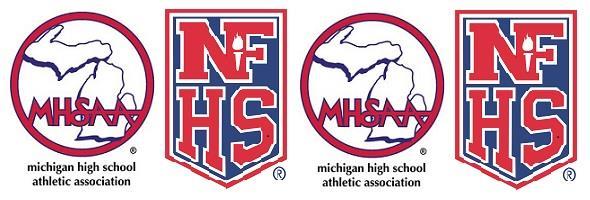
The Inherent Risk of Sport Specialization
April 30, 2018
 By Bob Gardner
By Bob Gardner
Executive Director of the National Federation of State High School Associations
One of the responsibilities that parents take most seriously is protecting their children from injury, whether it is buckling seat belts in a car or wearing a helmet while riding a bike. And when their kids become teenagers and want to participate in sports or other activities, parents do everything they can to keep their sons and daughters from getting hurt.
But not all injuries are caused by a twist, fall, collision or accident. Many are caused when young athletes repeat the same athletic activity so often that muscles, ligaments, tendons and bones don’t have time to recover—especially among middle school and high school students. These injuries can end promising careers, cost families tens of thousands of dollars, squash dreams and literally change lives.
Examples include elbow and arm injuries to teenagers who play baseball or softball all year long, shoulder injuries to year-round swimmers, wrist and elbow injuries to gymnasts, and stress fractures to soccer players.
The culprit, most often, is what’s commonly known as “sport specialization,” the process of playing the same sport all year long with the goal of either gaining a competitive edge or earning a college scholarship. It involves intense, year-round training in a single sport.
Research shows that sports specialization is putting teenage athletes at risk. According to a study commissioned by the National Federation of State High School Associations (NFHS) and conducted by researchers from the University of Wisconsin, high school athletes who specialize in a single sport are 70 percent more likely to suffer an injury during their playing season than those who play multiple sports.
The American Academy of Orthopedic Surgeons says much the same. It reports that “overuse injuries” (injuries caused when an athletic activity is repeated so often that parts of the body do not have enough time to heal) are responsible for nearly half of all sports injuries to middle school and high school students.
There is a solution. Young athletes should be encouraged to play multiple sports.
When student-athletes cross-train, they work different muscle groups and joints which, in fact, results in better overall conditioning. They also develop a new set of athletic skills like hand-eye coordination, balance, endurance, explosion and agility that are transferable to their primary sport. It’s no coincidence that 30 of the 32 first-round picks in the 2017 National Football League draft played multiple sports in high school.
Parents can play a key role in preventing these overuse injuries by encouraging their kids to play multiple sports rather than pushing them to specialize in one sport. They will have more fun, will be less likely to suffer burnout and will actually become better athletes.

Become an Official: HS Sports Need You
January 24, 2018
By Bob Gardner, Executive Director of the National Federation of State High School Associations
and Mark Uyl, Assistant Director of the Michigan High School Athletic Association
They don’t make the headlines, their names are not in the box scores and they don’t make the all-star teams. But perhaps the most important individuals in high school sports are the contest officials.
These individuals are so important that, in fact, there would be no organized competitive sports at the high school level without the men and women who officiate these contests every day across the country. Subtract the dedicated men and women who officiate high school sports, and competitive sports would no longer be organized; they would be chaotic.
In some areas of our country, high school officials are retiring faster than new ones are being added. And junior varsity, freshmen and middle school games are being postponed – or even cancelled – because there are not enough men and women to officiate them.
Anyone looking for a unique way to contribute to the local community should consider becoming a registered high school official. For individuals who played sports in high school, officiating is a great way to stay close to the sport after their playing days have ended. Officiating helps people stay in shape, expands their social and professional networks and offers part-time work that is flexible, yet pays. In fact, officiating is a form of community service, but with compensation.
Another benefit of officiating is that individuals become role models so that teenagers in the community can learn the life lessons that high school sports teach. Students learn to respect their opponents and the rules of the game and the importance of practicing good sportsmanship thanks, in part, to those men and women who officiate. And the objectivity and integrity that high school officials display is an example that every young person needs to observe firsthand. In short, communities around the country will be stronger because of the life lessons that high school officials help teach the next generation.
Officiating is a great way to stay connected to sports and to give back to the local high school and community. We need dedicated men and women to become involved so that high school sports can continue to prosper for years to come.
Individuals interested in learning more about becoming a high school official, and even beginning the application process, can do so at www.HighSchoolOfficials.com.

